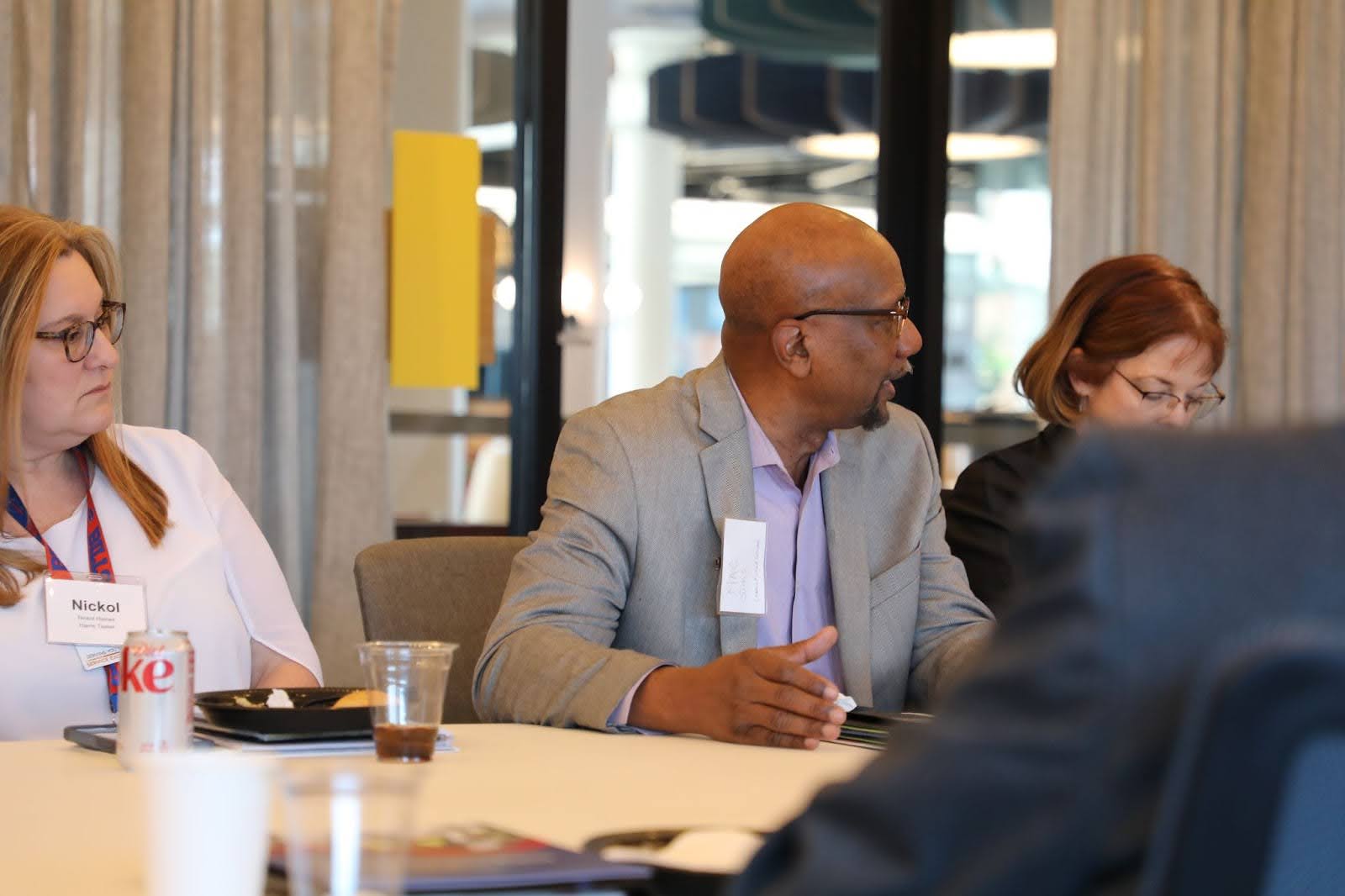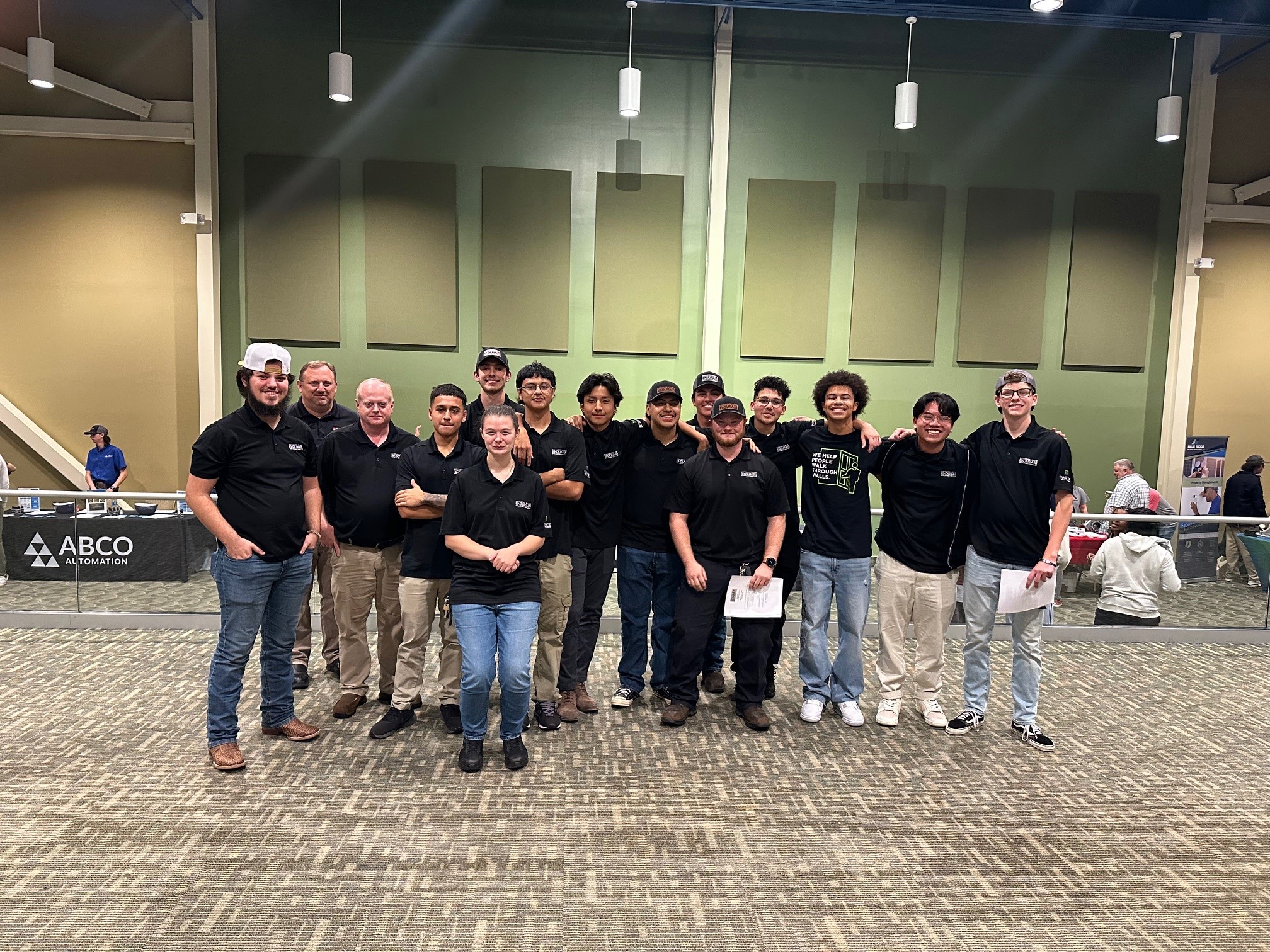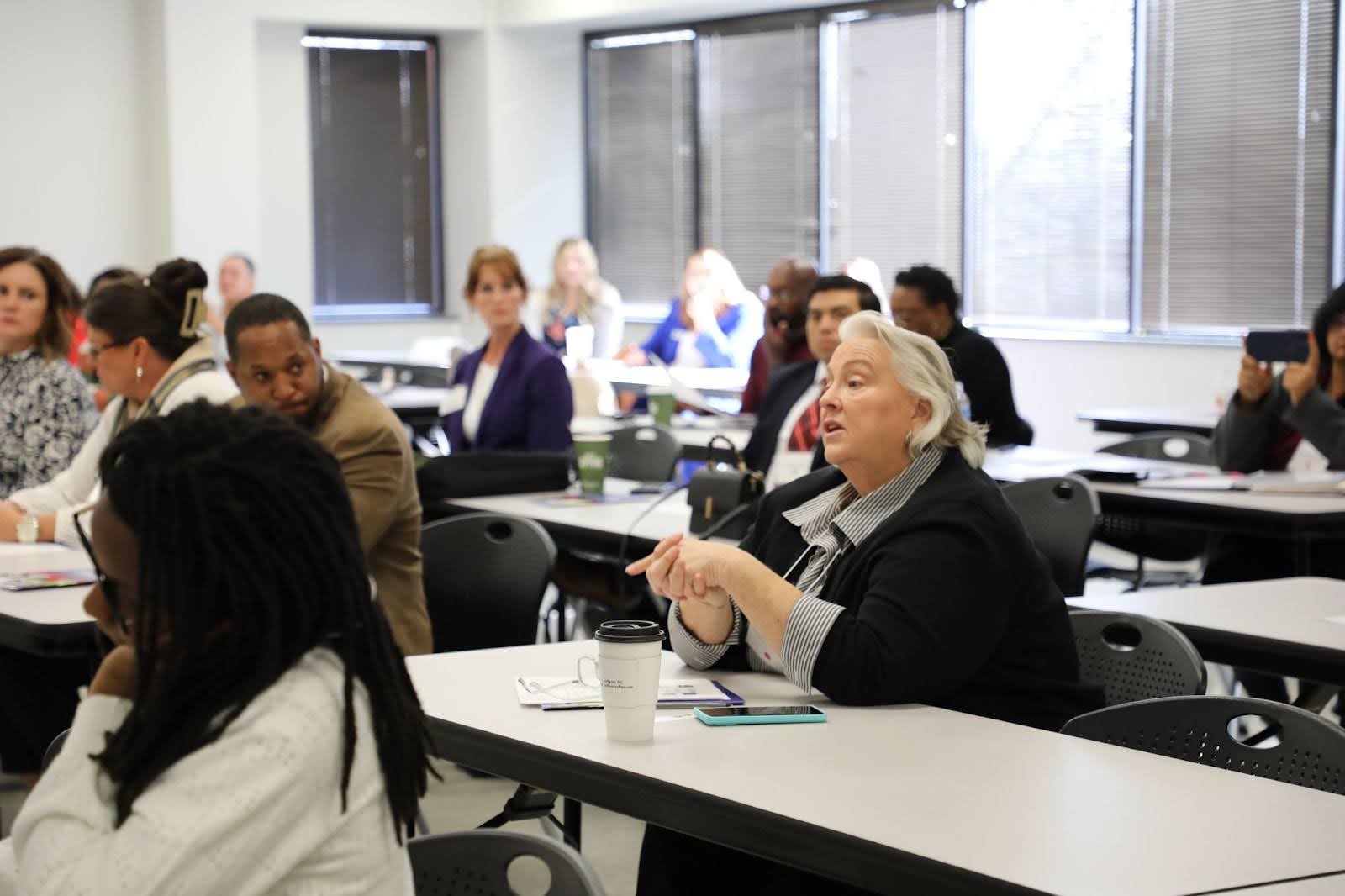Building With Our Veterans (Reconnect to Economic Opportunity)

Founded in 2016, Building with our Veterans is an education, training, and employment program that (as the name suggests) helps to secure long term work for veterans as code officials of Mecklenburg County. Coordinating between multiple institutions and stakeholders, the program is an innovative solution to several, overlapping problems.
Ebenezer Gujjarlapudi, the program’s initiator and department director of Mecklenburg County’s Land Use & Environmental Services Agency (LUESA), enjoys finding novel solutions to complicated problems, and roughly 20 years of civil service have made him well suited to the task. In 2015, the county identified three distinct challenges . The first challenge was a shortage of code officials, who perform plan review and building inspections. The county was growing quickly, but because of the Great Recession a half-decade earlier, they lost many code officials, and would need to rapidly recruit and train staff to keep up with growing demand. The second challenge came by way of a jobs report, indicating that there were few opportunities for economic mobility among mid-level, blue collar workers in the Charlotte area. The third challenge as identified by the Department of Community Support Services, who, working with veterans transitioning back into civilian life, were having difficulties finding stable employment and otherwise assimilating. Building with our Veterans emerged as an effort to address each of these challenges, within its capacities to do so.
While respecting the extraordinary service these veterans have already provided, the program strives to accommodate them. Purposed to prepare its recruits for N.C. Code Official Certification, participants must complete 999 hours of training which includes a combination of classroom and field instruction (at Central Piedmont Community College) and field-training, where they shadow certified inspectors — many of whom are veterans themselves. During this period, trainees are paid at the rate of $15 an hour (with tuition and exam fees covered), so that they can pursue this training without needing to work a separate full-time job or risk falling into debt. Provided that participants complete their coursework, field work, and pass their certification exam, they are guaranteed a code official job by the county. However, they are not contractually obligated to take that job, if they obtain a better professional opportunity for themselves along the way.
Though this last qualification may surprise some, Ebenezer reiterates that these individuals have already served the community, with this program preparing them for continuing service, wherever that may be. With pride, he recalls how one of their graduates came to him, having been offered a lucrative employment in Louisiana (during the post-2017 reconstruction effort). Without batting an eye, Ebenezer encouraged him to take it. And this energetic compassion is by no means an isolated instance, as I learned talking to graduates of the program.
Toyana, a mother of two, served as an army communications specialist (4 years). Coming home, she pursued an electrical engineering degree, and started working at a call center doing IT support. The experience was stressful and unsatisfying, so when a friend told her about the program, she took the opportunity. Commenting on the mix of “classwork with the ride alongs” she asserts that; it was “the hands-on field-experience that made it possible for me grasp everything, coming in with no experience at all.” “I have two young kids… the most challenging part was just fitting everything in: doing the schoolwork, the ride alongs, and raising the kids — but it was a great experience.” She was able to secure a position, while completing multiple certifications, and earning the “apprentice of the year”. Having now worked for five years as an inspector, she continues to expand her certification, and now mentors newer recruits — preparing them for a similar trajectory. Regarding her own future, “there really is no ceiling to what I can do with this knowledge and experience.”
Ebenezer argues that much of the program’s success derives from the flexibility that it affords recruits, and, in no small part, this flexibility is allowed because of how the program is funded — entirely through inspection fees. His department works closely with the industry stakeholders (e.g. developers and engineers) that comprise the Building Development Commission. Principally concerned with responsive, timely inspections and the healthy development of the community, these stakeholders saw the program as both a stable means of recruiting talent (both for the county and private developers), helping the community, and rewarding veterans for their service. Given the opportunity to either reduce inspection fees or fund this program, they elected to fund the program because it made sense on many different levels.
Reflecting upon it all, Ebenezer asserts that, “as government, we are here to serve people. You can see them as transactional, where the person is a number, or you can see them from the perspective of humanity, helping them through challenges they are facing, rather than compounding them.” And he applies this humble, empathy driven principle to all the citizens he serves, be it building homes or seeking out employment. Based on the success of the program, the city/county is considering similar programs that could be used to help differently vulnerable populations (e.g. high-school students, homeless persons, and/or rehabilitated prisoners) train for, and ultimately secure, civic work for which they are suited. Adding, “My perspective has always been that you look at [each person] as a human — because for every one of us, at some point in time, somebody took a chance on us… the question is, how best can we help them?”
Written by Chris Kampe.
- Categories:


